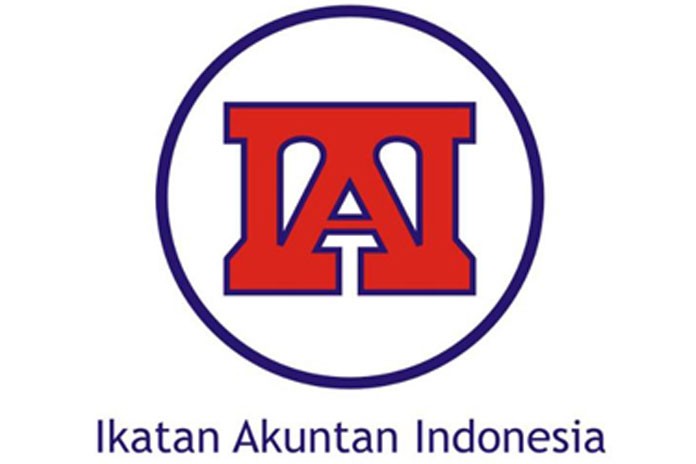Tax Avoidance Assessment In Relation To The Institutional Ownership, Size Of The Company, And Profitability
Abstract
Keywords
Full Text:
PDFReferences
Ainniyya, S. M., Sumiati, A., & Susanti, S. (2021). Pengaruh Leverage, Pertumbuhan Penjualan, dan Ukuran Perusahaan Terhadap Tax Avoidance. Owner: Riset Dan Jurnal Akuntansi, 5(2), 525–535.
Alm, J., & Torgler, B. (2011). Do ethics matter? Tax compliance and morality. Journal of Business Ethics, 101(4), 635–651.
Ardianti, P. N. H. (2019). Profitabilitas, leverage, dan komite audit pada tax avoidance. E-Jurnal Akuntansi Universitas Udayana, 26(3), 2020–2040.
Arianandini, & Ramantha. (2018). Pengaruh Profitabilitas, Leverage, dan Kepemilikan Institusional Pada Tax avoidance. E-Jurnal Akuntansi, 22(3).
Arikunto. (2019). Prosedur Penelitian. Rineka Cipta.
Ariska, M., Fahru, M., & Kusuma, J. (2020). Leverage, ukuran perusahaan dan profitabilitas dan pengaruhnya terhadap tax avoidance pada perusahaan sektor pertambangan di bursa efek indonesia tahun 2014-2019. Jurnal Revenue Jurnal Ilmiah Akuntansi, 1(1), 133–142.
Aulia, I., & Mahpudin, E. (2020). Pengaruh profitabilitas, leverage, dan ukuran perusahaan terhadap tax avoidance. Akuntabel: Jurnal Ekonomi Dan Keuangan, 17(2), 289–300.
Awaliah, R., Damayanti, R., & Usman, A. (2022). Tren Penghindaran Pajak Perusahaan di Indonesia yang Terdaftar di BEI (Tahun 2016-2020) Melalui Analisis Tingkat Effective Tax Rate (ETR) Perusahaan. Jurnal Bisnis Dan Akuntansi Kontemporer, 1(1), 1–11.
Balakrishnan, K., Blouin, J., & Guay, W. (2019). Does Tax Aggressiveness Reduce Corporate Transparency? The Accounting Review, 94(3), 225–254.
Barli, H. (2018). Pengaruh Leverage Dan Firm Size Terhadap Penghindaran Pajak. Jurnal Ilmiah Akuntansi Universitas Pamulang, 6(2).
Chen, S., Chen, X., Cheng, Q., & Shevlin, T. (2010). Are Family Firms More Tax Aggressive than Non-Family Firms? Journal of Financial Economics, 95(1), 41–61.
Dewi, N. M. (2019). Pengaruh Kepemilikan Institusional, Dewan Komisaris Independen dan Komite Audit Terhadap Penghindaran Pajak (Tax Avoidance) Pada Perusahaan Perbankan Yang Terdaftar Di Bursa Efek Indonesia Periode 2012-2016. MAKSIMUM: Media Akuntansi Universitas Muhammadiyah Semarang, 9(1), 40–51.
Dewinta, A., & Setiawan, P. (2016). Pengaruh struktur kepemilikan, mekanisme monitoring dan konflik keagenan terhadap tax avoidance. Journal of Accounting Science and Research, 5(3), 413–430.
Dyreng, S. D., Hanlon, M., & Maydew, E. L. (2010). The effects of executives on corporate tax avoidance. The Accounting Review, 85(4), 1163–1189.
Ferraro, P. (2017). Compliance in organizations: A meta-analytical review of the determinants of tax compliance behavior. Journal of Economic Psychology, 62, 160–173.
Fiandri, M. S., & Muid, D. (2017). Corporate Governance: Teori dan Implementasi. Prenadamedia Group.
Fitria, G. N. (2018). Pengaruh kepemilikan institusional, komisaris independen, karakter eksekutif dan size terhadap tax avoidance. Jurnal Profita: Komunikasi Ilmiah Akuntansi Dan Perpajakan, 11(3), 94–104.
Gallemore, J., Maydew, E. L., & Thornock, J. R. (2014). The reputational costs of tax avoidance. Contemporary Accounting Research, 31(4), 1103–1133.
Gangl, K., Hofmann, E., & Kirchler, E. (2015). Tax authorities’ interaction with taxpayers: A conception of compliance in social dilemmas by power and trust. New Ideas in Psychology, 37, 13–23.
Gitman, L. J., & Zutter, C. J. (2012). Principles of managerial finance (13th editi). Pearson.
Hajjariah, P. A., & Nurhayati, N. (2020). Pengaruh Profitabilitas dan Kepemilikan Institusional terhadap Tax Avoidance. Prosiding AKuntansi, 52–56.
Hanlon, M., & Heitzman, S. (2010). A review of tax research. Journal of Accounting and Economics, 50(2), 127–178.
Jensen, M. ., & Meckling, W. . (1976). Theory of the firm: Managerial behavior, agency costs and ownership structure. Journal of Financial Economics, 3(4), 305–360.
Junaedi, I. K., Sudiartana, I. M., & Dicriyani, N. L. G. M. (2021). Analisis Pengaruh Profitabilitas, Leverage, Kepemilikan Institusional dan Ukuran Perusahaan Terhadap Tax Avoidance. KARMA (Karya Riset Mahasiswa Akuntansi), 1(1).
Kirchler, E. (2007). The economic psychology of tax behaviour. University Press.
Kirchler, E., Hoelzl, E., & Wahl, I. (2008). Enforced versus voluntary tax compliance: The “slippery slope” framework. Journal of Economic Psychology, 29(2), 210–225.
Machfuzhoh, A., & Pratiwi, R. (2021). The Effect of Understanding Taxation Regulations, Tax Rates, Tax Sanctions, Tax Socialization, Fiscus Services and Online Services on The Level of Compliance with MSME Taxpayers. Jurnal Riset Akuntansi Terpadu, 14(1).
Mardiasmo. (2018). Perpajakan (Edisi Terb). Andi.
Mills, L., Erickson, M., & Maydew, E. (1998). Investments in Tax Planning. The Journal of the American Taxation Association, 20(1), 1–20.
Monica, R., & Andi, A. (2019). Pengaruh Kepatuhan Wajib Pajak, Pemeriksaan Pajak, Dan Pencairan Tunggakan Pajak Terhadap Penerimaan Pajak Badan Pada Kantor Pelayanan Pajak Pratama Serang Tahun 2012-2016. Jurnal Riset Akuntansi Terpadu, 12(1).
Nadya, N. (2021). Pengaruh Return On Asset, Debt To Asset Ratio Dan Capital Intensity Terhadap Tax Avoidance (Studi Empiris pada Perusahaan Manufaktur Sektor Aneka Industri yang Terdaftar di Bursa Efek Indonesia Periode 2015-2019). Doctoral Dissertation, Universitas Mercu Buana Jakarta.
Nindita, Karina, F., Rahman, A., & Rosyafah, S. (2021). Pengaruh Debt to Equity Ratio, Return on Assets, Related Party Transaction terhadap Penghindaran Pajak. UBHARA Accounting Journal, 1(2), 357–366.
Noorica, F. (2021). Pengaruh Kepemilikan Institusional, Kepemilikan Manajerial, Dan Karakter Eksekutif Terhadap Tax Avoidance. Competitive Jurnal Akuntansi Dan Keuangan, 5(2), 221–232.
Oktamawati, L. K. (2017). Analisis pengaruh perputaran modal kerja dan perputaran piutang terhadap profitabilitas (Studi kasus pada PT Globe Mitra Usaha Makassar). Jurnal Aplikasi Manajemen Dan Inovasi, 4(1), 63–75.
Praditasari, N. K. A., & Setiawan, P. E. (2017). Pengaruh good corporate governance, ukuran perusahaan, leverage dan profitabilitas pada tax avoidance. E-Jurnal Akuntansi Universitas Udayana, 19(2), 1229–1258.
Prasetyo, I., & Pramuka, B. A. (2018). Pengaruh kepemilikan institusional, kepemilikan manajerial dan proporsi dewan komisaris independen terhadap tax avoidance. Jurnal Ekonomi, Bisnis, Dan Akuntansi, 20(2).
Putra, I. P. S., & Merkusiwati, L. K. R. A. (2016). Pengaruh Struktur Modal Terhadap Nilai Perusahaan. E-Jurnal Akuntansi Universitas Udayana, 15(3), 2037–2062.
Putri, V., & Putra, B. (2017). Pengaruh leverage, profitability, ukuran perusahaan dan proporsi kepemilikan institusional terhadap tax avoidance. Jurnal Manajemen Dayasaing, 19(1), 1–11.
Rahayu, S. . (2017). Kepatuhan Wajib Pajak: Teori dan Aplikasi. pustaka pelajar.
Rahman, F. (2020). Analisis Faktor-Faktor Yang Mempengaruhi Tax Avoidance. JAMDI (Jurnal Akuntansi Multi Dimensi), 1(1).
Richardson, G. (2006). Determinants of tax evasion: A cross-country investigation. Journal of International Accounting, Auditing and Taxation, 15(2), 150–169.
Riyanto, B. (2013). Dasar-Dasar Pembelanjaan Perusahaan. BPFE.
Sari, A. Y., & Kinasih, H. W. (2021). Pengaruh profitabilitas, leverage, dan kepemilikan institusional terhadap tax avoidance. Dinamika Akuntansi Keuangan Dan Perbankan, 10(1), 51–61.
Sarimin, M., & Oktari, Y. (2023). Analisis pengaruh profitabilitas, leverage, ukuran perusahaan dan kepemilikan institusional terhadap tax avoidance. Eco-Fin, 5(1), 13–24.
Seltman, H. J. (2018). Experimental Design and Analysis. Mellon University.
Sintyawati, R., & Dewi, I. G. A. G. . (2018). Penentu biaya keagenan: Asimetri informasi dan struktur kepemilikan manajerial. E-Jurnal Akuntansi Universitas Udayana, 22(3), 1769–1796.
sugiyono. (2019). metode penelitian Kuantitatif, kualitatif & RND. alfabeta.
Sumarsan, T. (2017). Perpajakan Indonesia: Pedoman Perpajakan Yang Lengkap Berdasarkan Undang-Undang Terbaru (Edisi Keli). indeks.
Tahar, A., & Rachman, E. (2014). Kepatuhan Wajib Pajak dan Sifat Sebagai Servant of God. Jurnal Manajemen Dan Kewirausahaan, 15(2), 173–178.
Tanujaya, A. (2020). Pengaruh Kepemilikan Manajerial, Intensitas Aset Tetap Dan Profitabilitas Terhadap Tax Avoidance (Studi Empiris Pada Perusahaan Sub Sektor Property dan Real Estate yang Terdaftar di Bursa Efek Indonesia (BEI) Tahun 2016-2018). Doctoral Dissertation.
Tebiono, T., & Sukanda, Y. (2019). Faktor-faktor yang mempengaruhi tax avoidance pada perusahaan manufaktur yang terdaftar di Bursa Efek Indonesia tahun 2014-2018. JURNAL Universitas Negeri Semarang, 1(1), 1–14.
Torgler, B., & Schneider, F. (2009). No TitleThe impact of moral suasion and economic incentives on taxpayers’ compliance. Edward Elgar Publishing.
Vemberain, J., & Triyani, Y. (2021). Analisis Pengaruh Profitabilitas, Ukuran Perusahaan, Leverage, Dan Kepemilikan Institusional Tax Avoidance. Jurnal Akuntansi, 10(1), 40–62.
Wardani, D. K., & Purwaningrum, R. (2018). Pengaruh Karakteristik Perusahaan dan Corporate Social Responsibility Terhadap Penghindaran Pajak. Jurnal Riset Akuntansi Dan Keuangan, 14(1), 1–13.
DOI: http://dx.doi.org/10.35448/jrat.v17i1.24564
Refbacks
- There are currently no refbacks.
pISSN 1979-682X eISSN 2528-7443
Jurnal Riset Akuntasi Terpadu (JRAT) is licensed under a Creative Commons Attribution 4.0 International License







